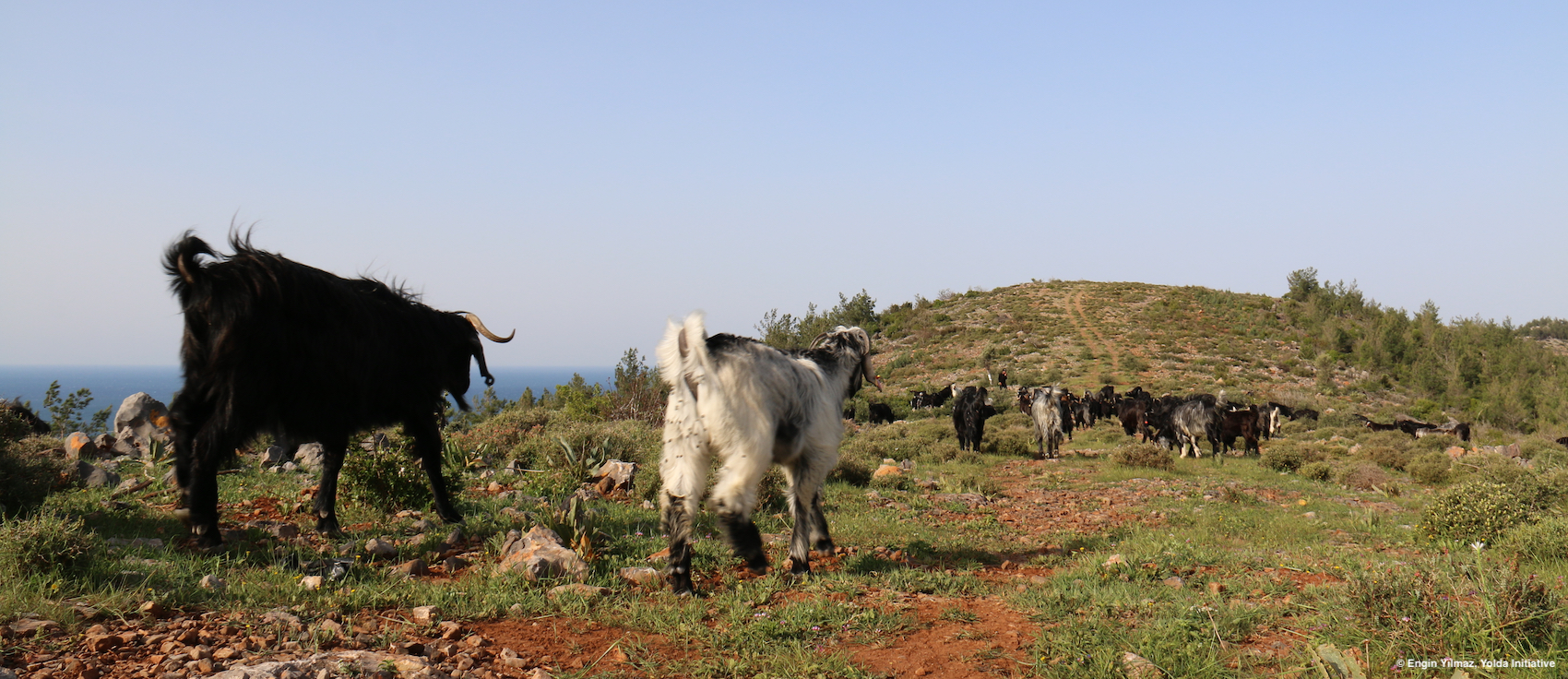We are monitoring wildfires’ impact on nomadic pastoralists, with Koray Çetin documenting the damage in Mersin’s pastures and homes.

Mobile Pastoralism as a tool to Combat Wildfires
Nomadic pastoralists like the Sarıkeçililer help prevent fires through grazing practices that reduce dry grass and leaf litter. Despite their crucial role in combating fires and climate change, they face increasing restrictions on accessing traditional habitats. Protecting pastures and ensuring access is vital for both fire prevention and climate resilience.

Understanding the Economics of Mobile Pastoralism: Fieldwork with Sarıkeçililer
We recently conducted fieldwork to enhance the economic capacity and resilience of the Sarıkeçili nomadic pastoralists. Our visits included discussions with families about production activities, labour dynamics, and challenges faced in meat and dairy production. We observed critical issues regarding pasture access, impacted by agricultural encroachment, climate change, and wildfires.

New Collaboration: Mapping for PastoralistsNew Collaboration:
Yolda has partnered on the Mapping for Pastoralists project, highlighting the vital contributions of pastoralists to environmental conservation, climate change adaptation, food security, and rural economies.

IYRP Virtual Side Event at HLPF
Join us in our IYRP Virtual Side Event on 6th July at this year’s UN HLPF: “Sustainable pastoralism and rangelands: impacts of COVID, and how not to leave them behind in the 2030 Agenda for Sustainable Development”!

A Presentation about Mobile Pastoralism and Climate at the Parliamentary Research Committee on the Impact of Global Climate Change
We presented “Mobile Pastoralism and the Climate Crisis” at the Parliamentary Research Committee meeting on June 23, 2021. Our discussion highlighted how mobile pastoralism sustains rangelands, minimizes fossil fuel use, reduces industrial inputs, prevents forest fires, and supports ecosystem resilience and water cycles.


